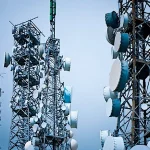Netflix Hikes Prices Again in Nigeria Amid Soaring Inflation And Weakening Naira
Netflix has once again increased its subscription prices in Nigeria, marking the third price hike in just over a year. As of June 2025, the Standard plan now costs ₦6,500, up from ₦5,500—a move that...

Netflix has once again increased its subscription prices in Nigeria, marking the third price hike in just over a year. As of June 2025, the Standard plan now costs ₦6,500, up from ₦5,500—a move that underscores growing concerns about affordability in a country battling economic hardship and inflation.
Table Of Content
The Basic plan has also risen to ₦4,000 (from ₦3,500), while the Mobile plan now goes for ₦2,500 (up from ₦2,200), according to reports by The Punch.
This latest adjustment follows a series of increases in July 2024, when Netflix raised the Premium plan to ₦7,000—a 40% jump. The Standard plan rose by 37.5% to ₦5,500, and the Basic plan went up by 21% to ₦3,500. The Mobile plan increased from ₦1,600 to ₦2,200 at the time.
Economic Pressure vs Streaming Access
Nigeria’s persistent economic downturn, marked by spiraling inflation and a weakening naira, has drastically reduced consumers’ disposable income. While video streaming remains a luxury in advanced economies, it’s becoming harder to justify for many Nigerian households.
In comparison, U.S. Netflix users pay $15.49 (~₦24,000) for the Standard plan—affordable due to a $60,000 average annual income. In Nigeria, where the new ₦70,000 minimum wage translates to just $43 monthly, many are feeling priced out of digital entertainment.
The Global Pricing Dilemma
Netflix’s global pricing model, increasingly under scrutiny, doesn’t always translate well in lower-income markets. The disparity in purchasing power parity (PPP) exposes the flaw in uniform subscription strategies and raises questions about long-term sustainability in emerging markets.
Without tailored pricing for regions like Nigeria, global streaming platforms risk losing subscribers as economic conditions worsen.
Netflix’s Africa Footprint and Nigeria Investment
Despite the price hike, Netflix maintains a firm presence in Nigeria. In 2023, the platform reaffirmed its commitment to African markets, particularly Nigeria and South Africa, after widespread reports falsely claimed a market exit.
Between 2016 and 2023, Netflix invested €160 million in African content, with Nigeria benefiting significantly through job creation and economic contributions. The company reportedly contributed:
-
$39 million to Nigeria’s GDP
-
$34 million in household income
-
$2.6 million in tax revenue
-
Over 5,140 jobs supported in the Nigerian economy
Netflix says it has invested over $23 million in more than 250 locally licensed and co-produced titles in Nigeria, reinforcing its intention to continue supporting local storytelling.
The Way Forward
As internet penetration and mobile device adoption increase across Nigeria, demand for on-the-go entertainment may grow. However, unless streaming services like Netflix re-evaluate regional pricing strategies, they risk alienating a significant portion of their user base in price-sensitive markets.









No Comment! Be the first one.